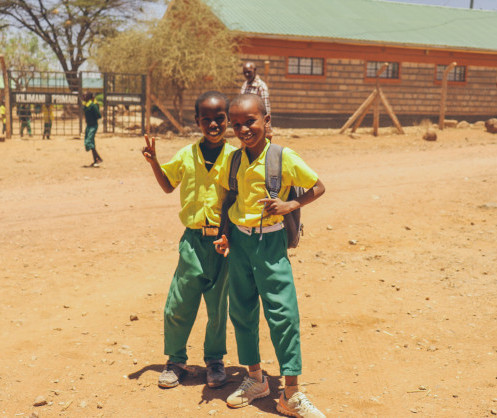Microsoft has announced new and expanded Airband partnerships set to provide high-speed internet access to nearly 40 million people across Latin America and Africa. These partnerships in Brazil, Chile, Colombia, Guatemala and Cote d’Ivoire, Kenya, Nigeria, Tanzania and Uganda mark significant progress in our commitment to extend high-speed internet access to 250 million people living in unserved and underserved areas around the world, including 100 million in Africa.
Across both Latin America and Africa, limited access to broadband can mean that people have fewer opportunities to develop the digital fluency and skills needed to participate in the digital economy.
According to Microsoft, internet access and meaningful connectivity is a fundamental right. The Microsoft Airband initiative was launched to bring transformative connectivity to unserved and underserved communities around the world. Through the Airband initiative and its partners, Microsoft is serving as a catalyst to enable affordable access to connectivity, specifically focusing on regions with lower digital connectivity rates.
Our efforts on the African continent are some of our most longstanding and farthest reaching. Today many African nations are rising economic powers, but on a continent with so many vast rural areas, delivering connectivity can be a challenge. On average Africa has a 40 percent internet usage rate. Partnerships are key to the success of the Airband model, and we are building upon our existing partnerships in Africa, including with Mawingu and Tizeti.
Kenya, Tanzania, and Uganda: Microsoft Airband’s relationship with Kenyan service provider Mawingu began in 2014 with a pilot in Nanyuki and has since expanded to deliver high-speed internet access to four million Kenyans living in rural areas. Mawingu was Airband’s first partner, and thanks to the public-partnership model, today the company is Kenya’s leading internet service provider dedicated to rural and peri-urban markets.
This latest expansion of our partnership with Mawingu will bring coverage to an incremental 16 million people across Kenya, Tanzania and Uganda by the end of 2025, ultimately covering a total of 20 million people.
Mawingu provides meaningful internet access to locations throughout Kenya, such as hotspots, vocational schools and businesses. Just one example of Airband’s partnership has resulted in the deployment of more than 700 hotspots and connectivity for more than 100 primary schools, enabling community members to access digital skills training and essential education materials. The company has also partnered with Unilever and Microsoft Philanthropies to provide access and skills to female entrepreneurs.
Nigeria and Cote d’Ivoire: Airband partner Tizeti has brought coverage to more than 900,000 people in Nigeria, expanding from Lagos to focus on underserved states across the country. Microsoft and Tizeti are expanding this partnership to Cote d’Ivoire, a cultural crossroads of West Africa, to bring internet access to almost 5 million people. Given that electricity is frequently unavailable, insufficient or unreliable in many parts of Africa, this expansion of our partnership includes infrastructure support and deployment of eight solar powered towers to help provide connectivity to households, small businesses and hotspots. This access will empower greater access to education, healthcare, and employment.
Through partnering with Microsoft’s Airband Initiative, organizations have additional support to create the infrastructure needed to provide connectivity support in many different ecosystems that ultimately drives self-empowerment and sustainable development and growth. These partnerships are essential in providing local expertise and experience to help achieve a greater goal tied to what can be harnessed with the support of connectivity.




